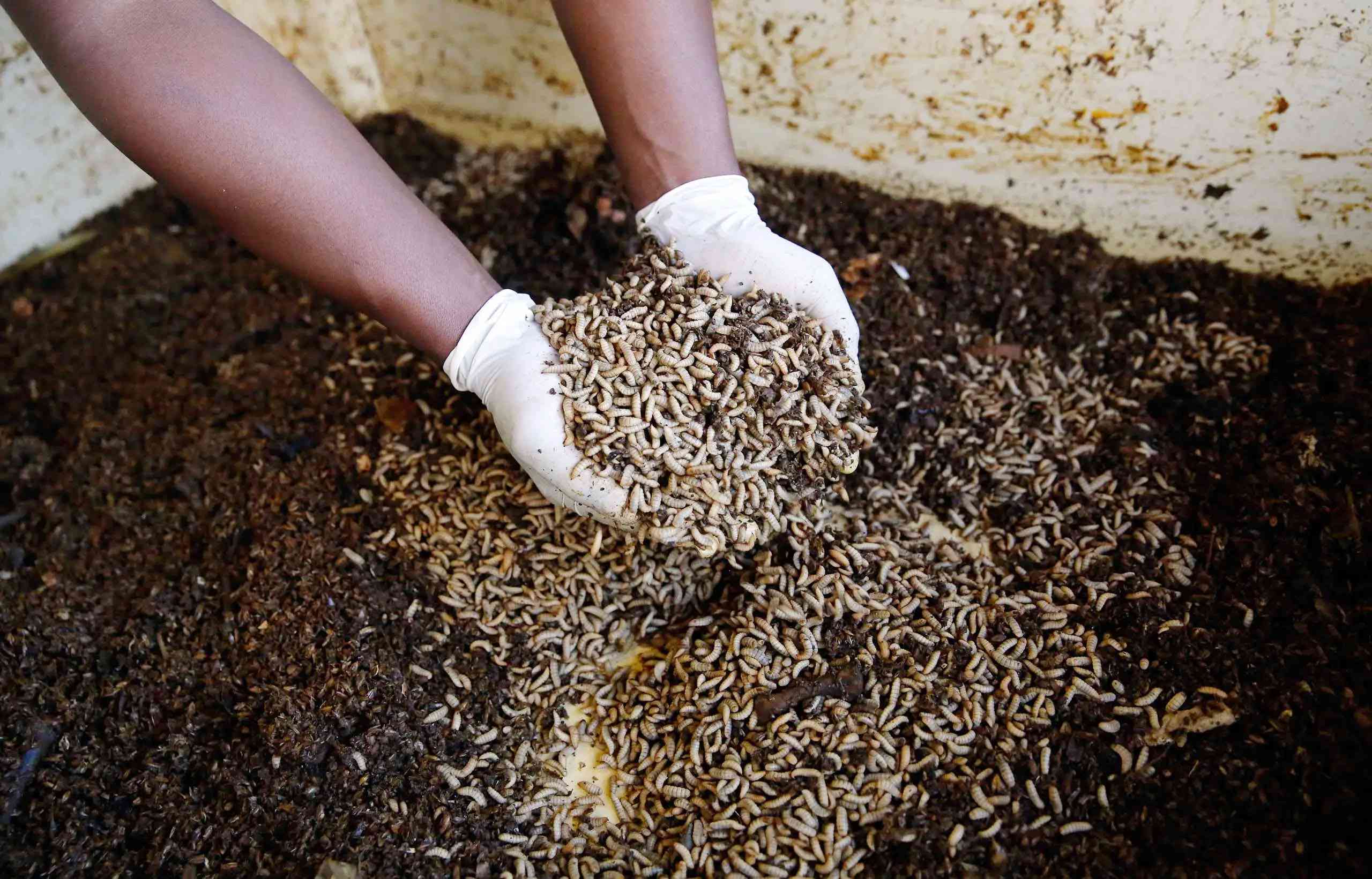
Three years ago, 43-year-old Benard Munondo was an “ordinary” Zimbabwean teacher at a local primary school, but now he has turned maggots into gold.
Thanks to maggot farming, Munondo, who has never owned a home nor driven a car, now has both.
In 2020, a week’s training on maggot farming changed his world.
One of the maggot farming trainers posted an advertisement on social media that lured Munondo.
“Discover the Fascinating World of Maggot Farming! Whether you’re a farmer looking to boost your livestock’s nutrition or an entrepreneur seeking a unique venture, this training is for you! Fee: US$ 30. Don’t miss out on this opportunity to revolutionise your farming practices,” read the advertisement.
This seized his attention.
Since then, he has not turned back and maggot farming has become a way of life in a country with 90% unemployment, according to the Zimbabwe Congress of Trade Unions (ZCTU).
Instead, Munondo, like several other maggot entrepreneurs, has become more of an employer after he set up a maggot plot of land just a year after he received training in farming the worms.
- Alternative farming ways during drought
- Maggot farming creates entrepreneurs, saves farming costs in Zimbabwe
Keep Reading
He has not, however, quit his teaching job, saying maggot farming, thanks to his workforce of 14 people at his plot outside the Zimbabwean capital Harare, has become his side job.
In fact, maggot farming, which involves breeding and harvesting maggots for various purposes such as producing cheap, high-protein animal feed, composting, and waste management, has become a big hit in Zimbabwe.
Many Zimbabweans, like Munondo in the capital, Harare, who are involved in maggot farming, are using the maggots to feed their own home-grown chickens.
For Munondo, that has helped cut costs for the over 800 chickens he rears in his backyard.
It now costs just US$3.50 for entrepreneurs like Munondo to fully breed one chicken using maggots, compared to US$ 6.50 using soy-based feed.
Thanks to maggot farming, Munondo claimed he was raking in US$70 to US$80 dollars a day from selling maggots alone, which he said at the end of the month exceeded the total he earns from his teaching job.
An average school teacher in Zimbabwe earns about US$200 every month after tax deductions and for many, like Munondo, maggot farming has come in handy to supplement his meagre earnings from his government job.
With garbage going uncollected for long periods across Zimbabwe’s towns and cities, thanks to poor service delivery by council authorities, Munondo said some residents are buying maggots to destroy uncollected waste.
“The same maggots that are feeding my chickens are being used to get rid of uncollected waste.”
As maggot farming gains traction in Zimbabwe, even young people like 23-year-old Jonathan Pamhare in Harare have found something to gain from the maggots.
“I don’t really do maggot farming, but I’m interested in them and I started a training company that offers agricultural training, and among the trainings is maggot farming,” Pamhare told IPS.
Well versed in all the procedures related to maggot farming, Pamhare also said, “It (maggot farming) is the most profitable business because your expense is mostly your time.”
As such, added Pamhare, they (the maggots) feed on just anything rotten that comes within their reach.
This, Pamhare said, is cheap, coming more often than not at zero cost, with the maggots maturing in a period of about two weeks.
From his training venture, Pamhare made his money, charging between USD30 and US$40 per head for all the trainees that he recruits.
In high-density areas of Harare like Sunningdale, five kilometers east of Harare, thanks to maggot farming trainers, several homes boast of rearing chickens for sale and feeding them using maggots.
Battling high prices for chicken feed has become a thing of the past, as many urban chicken farmers now switch to maggots to fatten their chickens.
But these are no ordinary maggots, according to many, like Munondo, who has made a name for himself as a thriving maggot farmer.
Maggots begin as what Munondo called black soldier flies — literally giant black flies — which, through metamorphosis, turn into maggots. Pig farmers have also embraced them and are now feeding their pigs with the protein-rich maggots.
The black soldier flies, popularly known as BSF here, have a four-stage life cycle from egg to larvae to pupa to adult fly.
The BSF deposit their eggs near a food source and after about three to four days, the flies grow into larvae that feed on the waste prior to being harvested.
There are no latest official statistics about maggot farmers in Zimbabwe, but the Zimbabwe Organic and Natural Food Association has been on record claiming that of late the number of maggot farmers had been growing.
The reason, said Munondo, is that maggot farming is the easiest.
“Maggots don’t require much land, while they need neither chemicals nor lots of water in order to be reared. Just a small land piece, flies, and waste, which are the most crucial components, are all one requires in order to kickstart maggot farming,” said Munondo.—IPS











